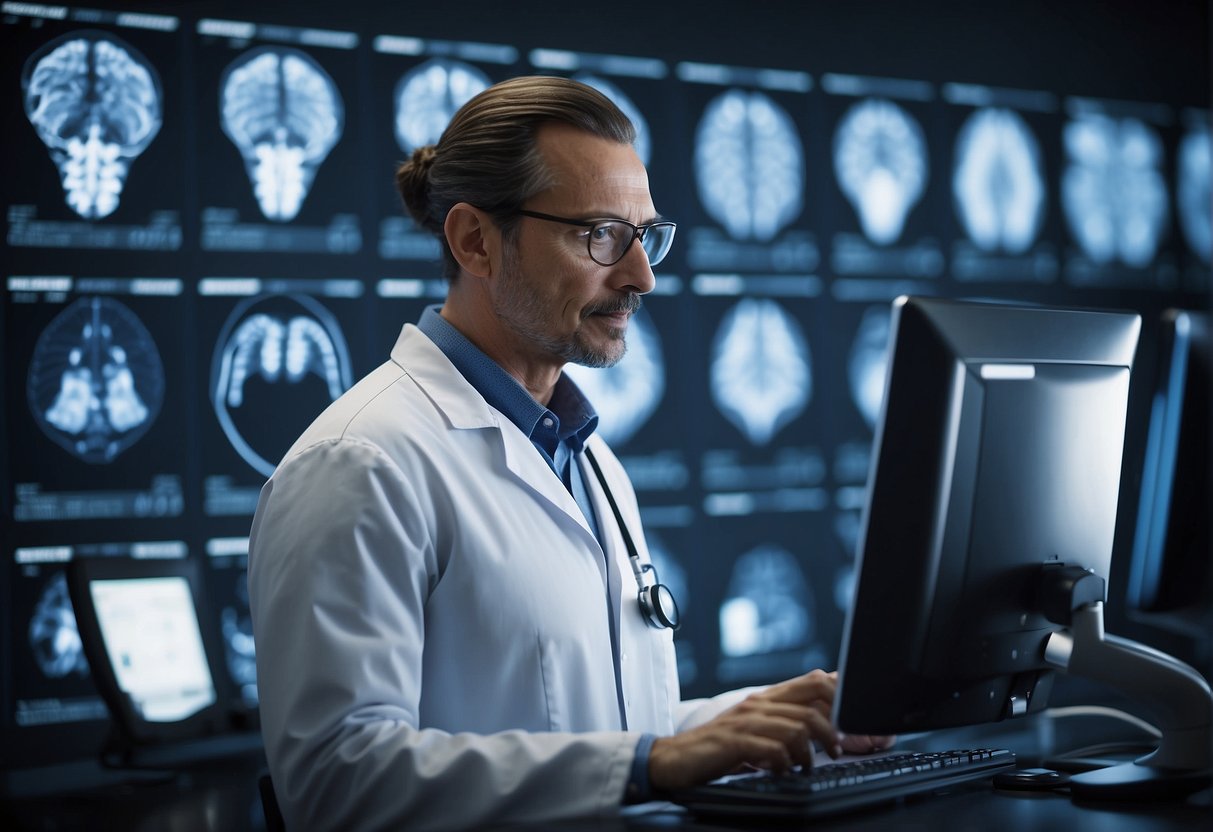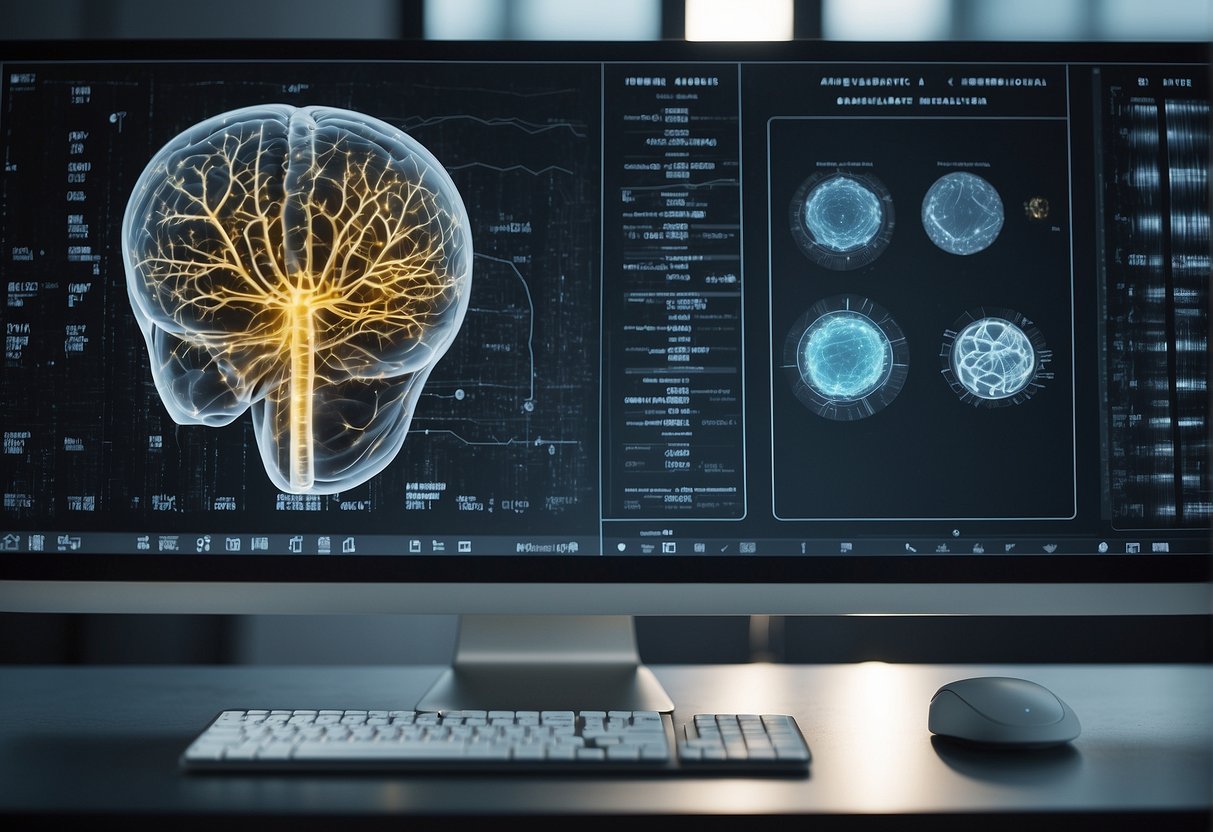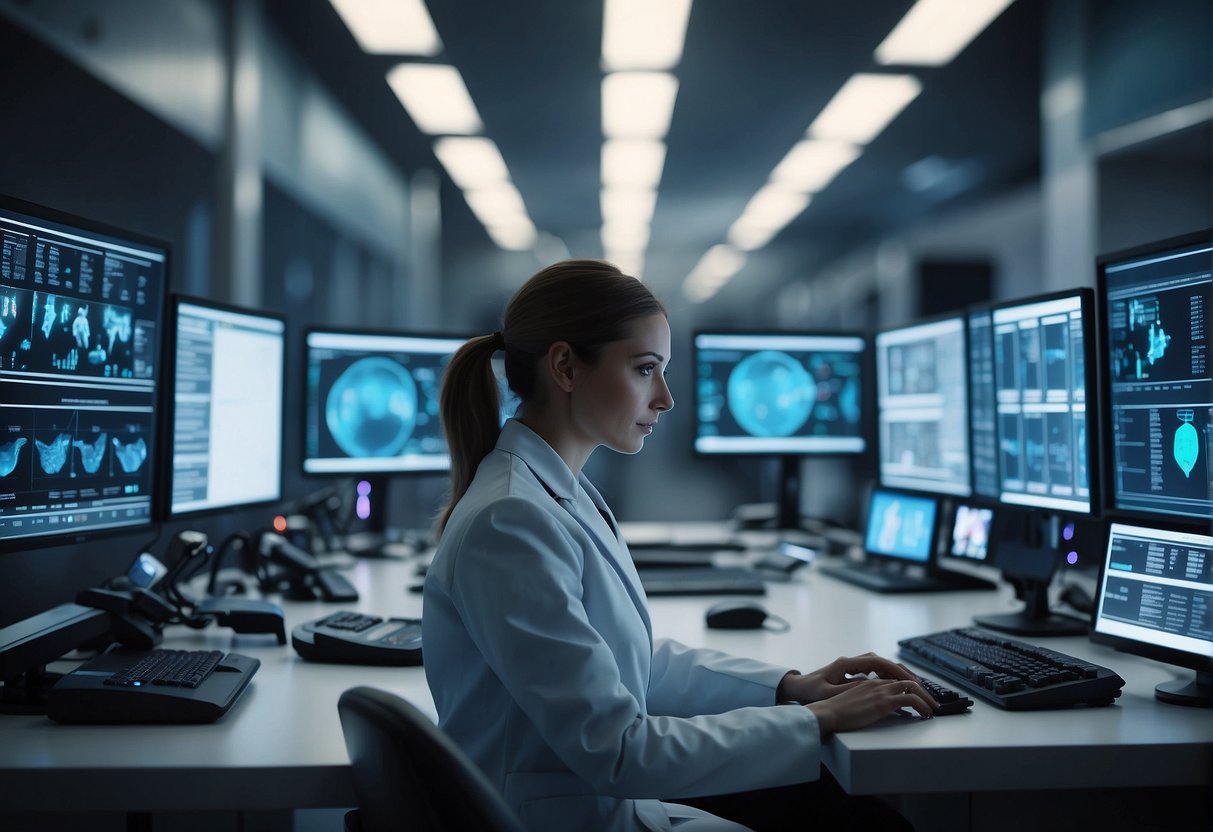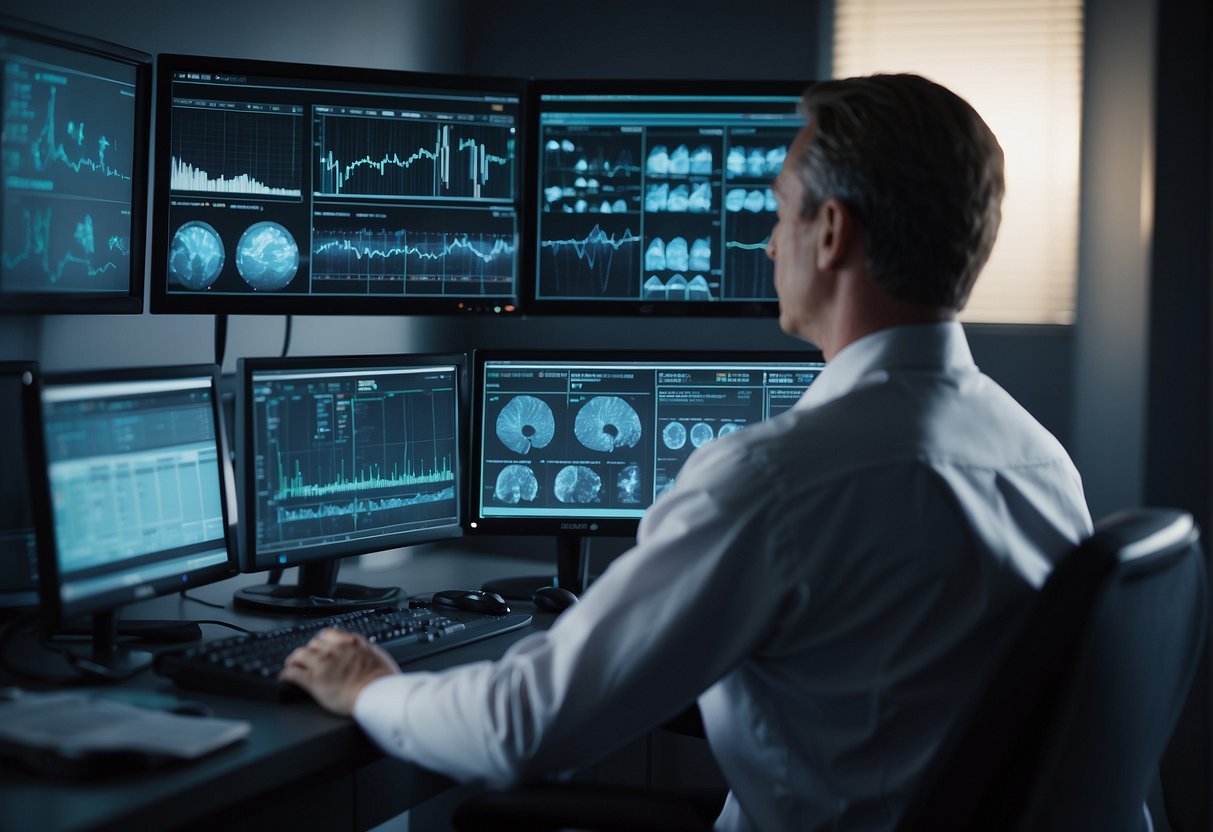Artificial Intelligence (AI) has been transforming various industries in recent years, and the healthcare sector is no exception. With the ability to analyze vast amounts of data quickly and accurately, AI is revolutionizing the field of healthcare diagnostics. AI is transforming the way healthcare providers diagnose and treat patients, leading to improved accuracy, efficiency, and accessibility of diagnostic processes, as well as enabling early disease detection and enhancing personalized medicine.
The evolution of AI in healthcare has been remarkable, with significant breakthroughs in the application of AI in healthcare. AI algorithms can analyze vast amounts of medical data and identify patterns and relationships that may not be apparent to the human eye. This technology can help healthcare providers make better and faster decisions, leading to improved patient outcomes. However, AI also poses some challenges and ethical considerations that require careful consideration.
Key Takeaways:
- AI is transforming healthcare diagnostics, leading to improved accuracy, efficiency, and accessibility of diagnostic processes, as well as enabling early disease detection and enhancing personalized medicine.
- The evolution of AI in healthcare has been remarkable, with significant breakthroughs in the application of AI in healthcare.
- While AI has the potential to improve patient outcomes, it also poses some challenges and ethical considerations that require careful consideration.
Evolution of AI in Healthcare

Artificial Intelligence (AI) has revolutionized the healthcare industry, offering new and innovative ways to diagnose and treat diseases. From early algorithms to deep learning, AI has come a long way in the past few decades, and its impact on healthcare is only expected to grow in the future.
From Early Algorithms to Deep Learning
AI in healthcare has evolved significantly over the years, from simple algorithms to complex deep learning networks. Early algorithms were used to analyze medical images, such as X-rays and CT scans, and identify abnormalities. However, these algorithms were limited in their ability to identify complex patterns and required large amounts of data to be effective.
With the advent of deep learning, AI has become more sophisticated, allowing it to analyze vast amounts of medical data and identify patterns that were previously impossible to detect. Deep learning networks can now identify subtle changes in medical images, such as the growth of a tumor, and predict the likelihood of disease progression.
Impact of AI During the Pandemic
The COVID-19 pandemic has highlighted the importance of AI in healthcare, particularly in the area of diagnostics. AI has been used to analyze medical images and identify COVID-19 pneumonia, a key symptom of the disease. It has also been used to develop predictive models that can identify patients at high risk of developing severe COVID-19 symptoms.
AI has also been used to develop new diagnostic tools, such as rapid COVID-19 tests, that can provide results in minutes. These tests use AI algorithms to analyze patient samples and detect the presence of the virus.
Improving Diagnostic Accuracy with AI

Artificial Intelligence (AI) has emerged as a transformative technology with immense potential in the field of medicine. By leveraging machine learning and deep learning, AI can assist in diagnosis, treatment selection, and patient monitoring, enabling more accurate and efficient healthcare delivery.
Machine Learning in Medical Imaging
Medical imaging is an essential tool for diagnosis and treatment planning. However, interpreting medical images can be challenging, and errors can lead to misdiagnosis and delayed treatment. Machine learning algorithms can assist radiologists in analyzing medical images, improving diagnostic accuracy and reducing the risk of human error.
AI-based algorithms can analyze vast amounts of medical imaging data, identifying patterns and relationships that may not be visible to the human eye. For example, machine learning algorithms can detect subtle changes in tissue density or texture that may indicate the presence of disease. By automating the analysis of medical images, AI can improve the speed and accuracy of diagnosis, enabling earlier detection and treatment.
Natural Language Processing for Electronic Health Records
Electronic Health Records (EHRs) contain a vast amount of patient data, including medical history, test results, and treatment plans. However, extracting meaningful insights from EHRs can be challenging, as the data is often unstructured and difficult to analyze.
Natural Language Processing (NLP) is a branch of AI that enables computers to understand and interpret human language. NLP algorithms can analyze EHRs, extracting valuable insights that can improve diagnostic accuracy and treatment planning.
For example, NLP algorithms can identify patients with a high risk of developing a particular disease based on their medical history and demographic data. NLP can also analyze clinical notes to identify patterns and trends in patient symptoms, enabling earlier detection and treatment of disease.
AI-Driven Personalized Medicine

Artificial intelligence (AI) is transforming healthcare diagnostics in unprecedented ways. One of the most promising applications of AI in healthcare is personalized medicine. Personalized medicine is an approach to patient care that takes into account individual variability in genes, environment, and lifestyle for each person. AI-driven personalized medicine has the potential to improve the accuracy, efficiency, and accessibility of diagnostic processes, as well as to enable early disease detection and enhance treatment effectiveness.
Genomics and Predictive Analytics
One of the key components of personalized medicine is genomics. Genomics is the study of an individual’s genetic information, including their DNA sequence. AI can be used to analyze large amounts of genomic data and identify patterns that can be used to predict an individual’s risk of developing certain diseases. This information can then be used to develop personalized treatment plans that are tailored to the individual’s specific needs.
Predictive analytics is another important tool in personalized medicine. Predictive analytics involves using AI algorithms to analyze large amounts of data from different sources, such as electronic health records, laboratory results, and patient-reported outcomes. This data can be used to identify patterns that can predict an individual’s risk of developing certain diseases or conditions. This information can then be used to develop personalized treatment plans that are tailored to the individual’s specific needs.
Creating Personalized Treatment Plans
Another key component of personalized medicine is creating personalized treatment plans. AI can be used to analyze large amounts of data from different sources, such as electronic health records, laboratory results, and patient-reported outcomes, to develop personalized treatment plans that are tailored to the individual’s specific needs. AI can also be used to monitor the effectiveness of treatment plans and make adjustments as needed.
Challenges and Ethical Considerations

As with any new technology, the use of AI in healthcare diagnostics presents several challenges and ethical considerations that must be addressed to ensure its safe and effective implementation. Two key areas of concern are data privacy and security, and ensuring trust and accountability.
Data Privacy and Security
One of the primary challenges of using AI in healthcare diagnostics is ensuring the privacy and security of patient data. As AI systems rely on large amounts of data to make accurate diagnoses, there is a risk that sensitive patient information could be compromised if proper security measures are not in place. This includes not only protecting data from external threats such as hackers, but also ensuring that data is only accessed by authorized personnel and that patient privacy is maintained at all times.
To address these concerns, healthcare providers must implement robust security protocols and ensure that all staff members are trained in data privacy best practices. This includes using encryption to protect data both at rest and in transit, limiting access to sensitive data to only those who need it, and regularly auditing systems to identify and address potential vulnerabilities.
Ensuring Trust and Accountability
Another key challenge of using AI in healthcare diagnostics is ensuring that patients and healthcare providers can trust the technology to make accurate diagnoses. This requires not only developing AI systems that are highly accurate and reliable, but also ensuring that patients and providers understand how these systems work and can be held accountable for any errors that may occur.
One way to achieve this is through transparency and explainability. By providing clear explanations of how AI systems arrive at their diagnoses, patients and providers can better understand the technology and have greater confidence in its accuracy. Additionally, healthcare providers must ensure that they have processes in place to address any errors or inaccuracies that may arise, including providing patients with recourse if they believe they have been misdiagnosed.
Future Trends in AI and Healthcare

Artificial intelligence (AI) has already begun to transform healthcare diagnostics and is expected to continue to do so in the future. Here are some potential future trends in the integration of AI with emerging technologies and the role of AI in healthcare workforce development.
Integration of AI with Emerging Technologies
One of the most exciting future trends in AI and healthcare is the integration of AI with emerging technologies. For example, AI could be used in conjunction with virtual reality (VR) or augmented reality (AR) to provide more immersive and interactive training experiences for healthcare professionals. This could help to improve the quality of healthcare education and training, resulting in better patient outcomes.
Another potential application of AI with emerging technologies is the use of AI-powered robots in healthcare settings. These robots could be used to perform routine tasks, freeing up healthcare professionals to focus on more complex tasks that require human expertise. Additionally, these robots could be used to provide companionship and support for patients, particularly those who are isolated or in need of long-term care.
The Role of AI in Healthcare Workforce Development
As AI continues to evolve and become more integrated into healthcare diagnostics, it will be important for healthcare professionals to develop new skills and competencies.
This will require ongoing education and training programs that focus on the use of AI in healthcare.
One potential approach to healthcare workforce development is the use of AI-powered learning systems. These systems could be used to provide personalized training experiences that are tailored to the individual needs and learning styles of healthcare professionals.
Additionally, these systems could be used to provide ongoing feedback and support, helping healthcare professionals to continuously improve their skills and knowledge.
Overall, the integration of AI with emerging technologies and the role of AI in healthcare workforce development are two important future trends in AI and healthcare.
As AI continues to evolve and become more integrated into healthcare diagnostics, it will be important for healthcare professionals to stay up-to-date with the latest trends and developments in order to provide the best possible care for their patients.



